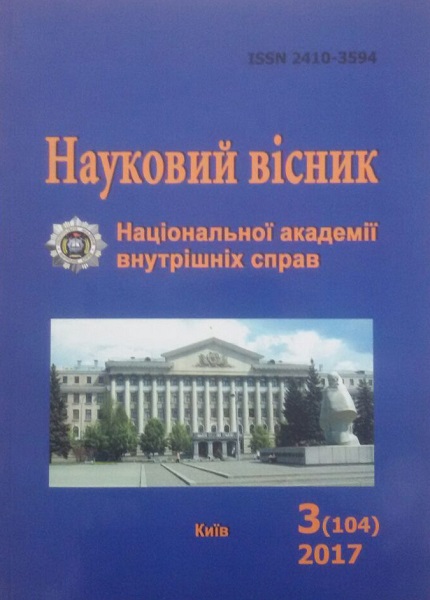The Legal Nature and Status of the Local Community: the Doctrinal Aspect
Abstract
The article analyzes different approaches regarding the
clarification of the nature and essence of this phenomen as the local
community, its organizational-structural and subject-functional
characteristics also identified features of the status and personality of
the local community in the context of existing domestic and foreign
research in this field.
Local community as «legal model of self-organization» with the
administrative structures able to realize and defend local interests.
In general, it is a complex form of social organization, a set of local
residents, the United public basis within a certain area such
voluntary association acting on the basis of the statute or by the
decision of local referendums are combined with other communities
to exercise self-government within the Constitution and laws of the
State. They are endowed with a legal personality.
Among the indirect or mediated forms of implementation of
community law on local self-government Select the activity of bodies
and official persons of the local Government, the respective
associations (unions), etc.
Finally on the verge of 20–21st Centuries territorial communities
(and in some countries and regional communities), the Association of
bodies and official persons in local (regional government) are given a
special rights, the ability to be participants in a wide or a certain
circle of public, including national level, and international-legal or
supranational.
Despite this, we believe that the Institute community personality
belongs to those who are in need as a further of study of doctrine
and further legislative improvement.
Downloads
Abstract views: 127 PDF Downloads: 107
- Authors reserve the right to authorship of their own work and transfer to the magazine the right of the first publication of this work under the terms of the Creative Commons Attribution License, which allows other persons to freely distribute published work with mandatory reference to authors of the original work and the first publication of an article in this magazine.
- Authors have the right to enter into separate additional agreements on non-exclusive dissemination of the work in the form in which it was published in the journal (for example, to post an article in the institution's repository or to publish as part of a monograph), provided that the link to the first publication of the work in this journal is maintained.
- The journal's policy allows and encourages the posting of articles by authors on the Internet (for example, in electronic storehouses of institutions or on personal websites), both before the submission of this manuscript to the editorial office and during its editorial processing, as this contributes to the creation of a productive scientific discussion and positively affects the efficiency and dynamics of citing the published work.




